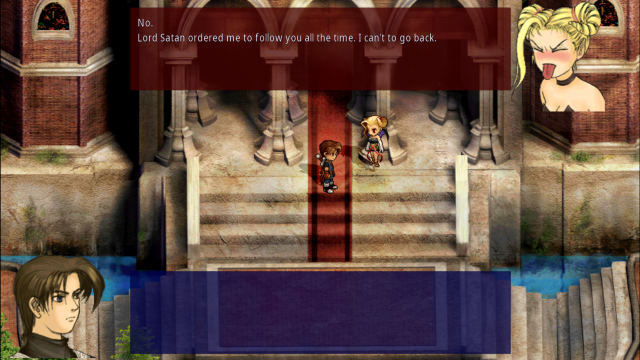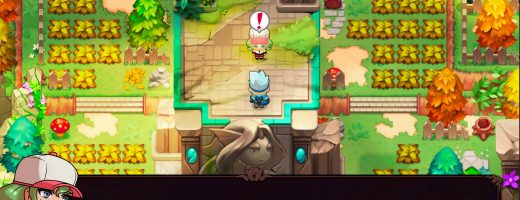Xuan-Yuan Sword: Mists Beyond the Mountains Review
Every Series Has a Black Sheep
It’s still early days, but western markets are slowly playing catch-up with the Chinese RPG series Xuan-Yuan Sword. While the property has seen over a dozen releases in its home country, Xuan-Yuan Sword: Mists Beyond the Mountains only marks the third effort to bring a game from within the series continuum to foreign shores. Unfortunately, if the lackluster effort and whiplash-inducing shifts in quality, balancing, and storytelling on display here are any indication, the outlook for future localizations looks anything but rosy.
The narrative on offer — often incredibly obscured and difficult to follow — is a true globe-trotting adventure, following protagonist Septem on a mission for the 8th-century CE Frankish Empire that takes him from Venice through the Middle East and into China, somehow always being at the right place and time to play a role in several invasions, regime overthrows, and all-out wars along the way. Paralleling the purely historical aspect of Septem’s travels are his frequent run-ins with the reincarnation of Satan, a lovestruck (and frequently doltish) demoness named Nicole, a love triangle involving his rival Miles, his efforts to learn Chinese, and a large number of other non-sequiturs that stand against the established narrative at right angles and turn the whole plot into a convoluted yet inconsequential mess. The designers went with the “throw everything at the wall and see what sticks” storytelling approach, and though it might have come across infinitely better in its native tongue, the localized effort miserably falls apart into disparate pieces that lack any sense of cohesion.
The one constant running through the game from the first scene to the final piece of dialogue is its horrendous, haphazard translation. Awkward turns of phrases permeate the entire script, completely undercutting what are clearly intended to be touching or suspenseful moments. Tone and voice are all over the place, with no character following a clear personality template; any given character may, at any given moment, communicate like a reasonable adult in one line, then opt for an immature, ill-conceived retort in the very next instant. The level of polish on the English release is so utterly absent that the game rarely feels like it was written by a human being. Even the way text is displayed is anything but consistent, with some lines accompanied by character portraits, others without, and still others show up and disappear from the screen far faster than they could possibly be read. Where Mists Beyond the Mountains certainly has its gameplay issues, its story has been mutilated and rendered lost in translation.
When not trying to assign appropriate emotional weight to the misshapen story, the player will be kept busy keeping frustration at bay trying to deal with the game’s gameplay issues. Early on, advancing is a walk in the park, as players can breeze through fights. However, things soon take a turn for the worse, with late-game enemies and particularly bosses that are poorly balanced to the point of frustration. Matters further deteriorate when taking into account strange inconsistencies like characters sometimes acting out of turn order, enemies dying despite having remaining HP, and otherwise weak enemies one-shotting an entire party of leveled and geared fighters due to an apparent bad roll of the dice. On one occasion, a lengthy boss fight was followed immediately by a random enemy encounter after taking only a single step on the map, ending in the party being wiped out and all that progress lost. Even the final boss, who was a tough nut to crack even for a party with perfect equipment loadout, can shockingly be finished off by a single petrification spell — that is, until the game then attempts to load in the ending scene, only to become flustered by the boss’s unresponsive petrified status, causing it to glitch and forcing a hard reset and boss battle do-over.
At least the nuts and bolts of the combat system itself are in generally passable working order. Every member of the player party, which eventually expands to four characters who automatically swap in and out of the rotation as the plot requires, is able to act once their action gauge is full, and the same holds true for enemies. Basic attacks, special skills, and magic spells are all par for the course. Additionally, Septem receives the ability to capture most enemies once their health is sufficiently low and entrap them within his Spirit Fusion Pot. This special item not only provides a sort of demon plane Septem can travel to to converse with his demonic allies, but also lets him combine enemies and items to forge new items and creatures. Less obvious (due to it never being addressed anywhere in-game) are the abilities to also equip said enemy spirits for stat boosts or treat their spirits as consumable items to summon them during battle. Other system remain equally as unaddressed, such as the benefit of facing the same enemies enough times to build up their codex entries or the fact that some equipment has special unlockable properties that require building up a separate experience meter for each one. Even basic on-screen info, like the difference between each party member’s health, vitality, and spirit meters must be independently worked out by the player over time.
Surprisingly for a twenty-plus-year-old game, its graphics have held up fairly well. This is in large part due to the timeless spritework that has aged rather gracefully, and noteworthy touches like hand-painted character portraits and even the occasional striking environmental art. However, some graphical aspects are less impressive, including the few-and-far-between CG cinematics and some backgrounds that, due to some strange design decision, resemble nothing so much as half-finished pencil sketches and have been left that way in the final game. On a related note, dungeon design is also horribly dull and non-imaginative, with straight corridors and four-way intersections wherever the eye can see. This, coupled with the game’s already high encounter rate, makes dungeons at best a forgettable chore to suffer through.
The game’s music hovers around average, though this does place it on the higher end of the spectrum of the overall experience. No singular tracks go so far as to be memorable, but they’re at least easy to listen to, with the odd high point or two along the way. It comes as a pleasant surprise that the music does, at times, go the extra mile to mirror Septem’s geographical travels throughout the game, bringing in regional instruments and musical styles to suit the changing settings. Voice acting is, apart from some ferociously compressed battle cries, entirely absent.
I had every intention of enjoying Xuan-Yuan Sword: Mists Beyond the Mountains; I quite liked Xuan Yuan Sword 7 when it received a western release a few years back, and I am generally a fan of throwback, pixel-art styles with turn-based combat. But it didn’t take long for the game to tear down any goodwill built up by its predecessor or my personal inclinations. When push comes to shove, there’s just no way to ignore the terrible blow dealt to the game by its one-of-a-kind translation, evident in everything from the philosophical musings of the plot to how character arcs unfold. And if that alone wasn’t the deathblow, then the frustrating and plain unfun balance issues that made me beg for credits certainly did the trick. There’s no two ways about it: Mists Beyond the Mountains would have fared better staying shrouded in the fog of ancient obscurity.
Disclosure: This review is based on a free copy of the game provided by the publisher.


Highly original globe-trotting idea for an RPG plot
Even the ravages of time can't do in skillful spritework and instrumentation
A translation that's so alien it beggars belief
Wonky difficulty balance means ending credits are a sweet relief
A litany of poorly explained game systems
A final boss that crashes the game when defeated a certain way









Recent Comments